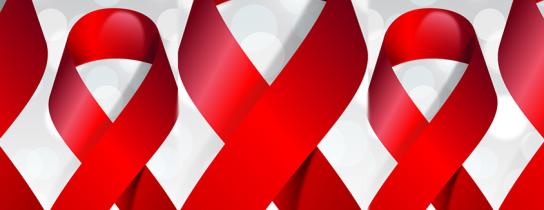
HIV: Stigma and Misconceptions vs. ths Facts
When you think of people with HIV, who comes to mind?
Freddie Mercury?
Irving “Magic” Johnson?
Charlie Sheen?
For many, that person could be a friend, a sibling, or even a parent.
Over the past several decades, the treatment of HIV has progressed. From back in the 1980’s, in the time of the tennis legend Arthur Ashe, when treatment options were not available, and HIV was a fatal disease, to where HIV treatment is now, where, when taking the proper medications correctly, the life expectancy similar to the overall life expectancy of the United States.
Despite these advancements in the care of patient’s with HIV, stigmas and misconceptions still exist.
HIV – Know the Facts, Know Your Status
Did you know 1 in 7 people living with HIV are unaware that they have the infection? A shocking statistic considering more than 1.1 million people have this infection. It’s important to find out if you or a loved one has HIV in order to get treatment and to use extra precaution to prevent spreading the infection to others.
If you are at risk for acquiring HIV infection (ie multiple sexual partners), you should discuss options that available to further decrease your risk.
What is HIV?
HIV, Human Immunodeficiency Virus, is a chronic infectious disease that attacks the body’s immune system and over time, when left untreated, can lead to Acquired Immunodeficiency Syndrome (AIDS). HIV compromises your immune system by attacking your body’s T cells, a conductor of your immune system. Although HIV is incurable, it can be treated and be well controlled, which can increase the lifespans of those living with the disease and prevent the further spread to others. Without treatment over a number of years as the immune system degrades, can result to the final stage, AIDS. At this point, your immune system is damaged to a point where it can no longer fight off other infections.
What Are Symptoms of HIV?
After a time of being initially infected, some people can develop the symptoms of acute symptomatic HIV syndrome. Symptoms associated with this are flu-like symptoms, which are common symptoms among other sicknesses and can include: fever, chills, fatigue, muscle aches, swollen lymph nodes, night sweats, rash, sore throat, or mouth ulcers. Even if you experience these symptoms, you may not have HIV; the only way to confirm if you have the infection is to get tested by a health care provider.
However, an important caveat is that 10-60% of people with early HIV infection may NOT have any symptoms, making screening for HIV by your primary provider even more important.
How Can You Get HIV?
HIV is spread through contact with an infected person’s bodily fluids. These fluids include blood, semen, vaginal secretions, and breast milk. Common ways to encounter HIV include sharing injection needles, sexual intercourse, oral sex, and breastfeeding.
The Best Choice, Know Your Status
The best option for your overall health is to know your HIV status. The CDC has resources available to find confidential testing places near you. Visit gettested.cdc.gov, text your ZIP code to KNOW IT (566948), or Call 1-800-CDC-INFO (1-800-232-4636) to find the most convenient location.
OB/GYN’s offer testing during yearly well women’s visit exams and your Primary Care Physician can offer more information on getting tested.
Don’t take a chance when it comes to your health. The first step to treating HIV is knowing that you have it. Now more than ever, resources are available for those diagnosed with HIV to get the help they need.
Arturo G. Pascual, Jr., MD, is an Infectious Disease Specialist at Crystal Run Healthcare in West Nyack. He earned his Medical Degree from Cebu Doctors University in Mandaue City Cebu, Philippines and completed his Residency in Internal Medicine at NYMC/Westchester Medical Center in Valhalla, NY. Dr. Pascual completed his Fellowship training in Infectious Disease at NYMC/Westchester Medical Center in Valhalla, NY and is Board Certified in Internal Medicine. Dr. Pascual has clinical interests in HIV and travel/tropical infectious diseases.
Sources
https://www.hiv.gov
https://www.cdc.gov/hiv/basics/statistics.html

 Optum Radiology at Crystal Run Healthcare
Optum Radiology at Crystal Run Healthcare Same and next-day pediatric appointments
Same and next-day pediatric appointments